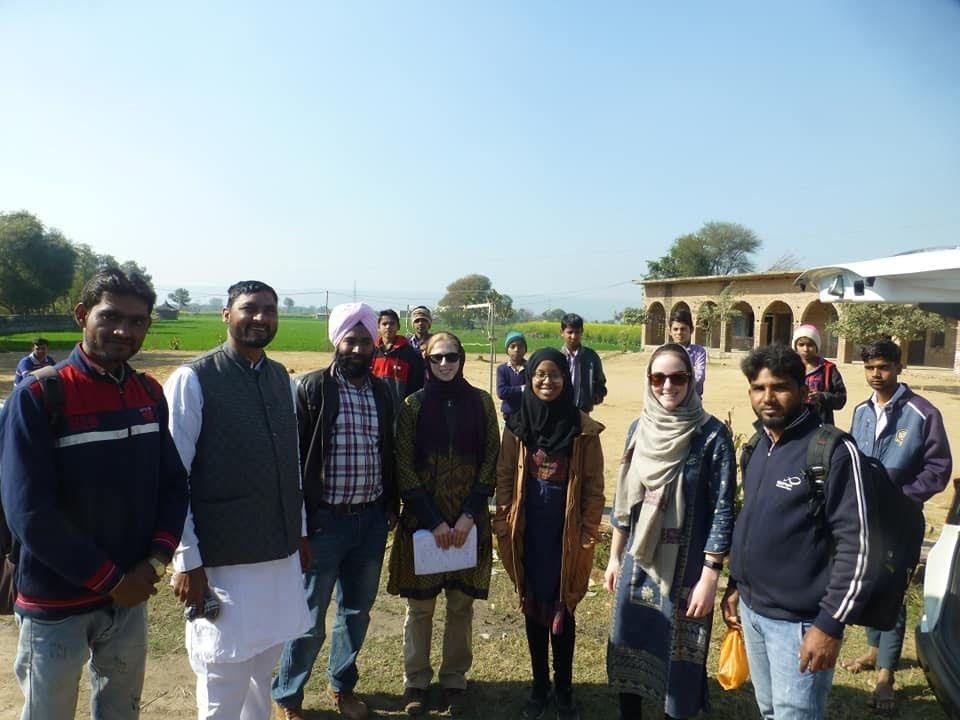Experiencing India By Burton Bollag University of Iowa students visit India every year to learn about the challenges faced by the country and work on solutions as part of the university’s India Winterim program. Every winter, since 2012, about a dozen students from the University of Iowa have spent three weeks in India, learning firsthand about efforts to alleviate “water poverty” in a rural part of the country. The course, titled Water Poverty in Rural India: A Freshwater Crisis Case Study, is part of the university’s India Winterim annual field-based program. Graduate and undergraduate students of several university departments are offered intensive three-week courses in India, between the fall and spring semesters, typically between December and January. Apart from water poverty, students have the opportunity to learn about issues related to pain and palliative care as well as sustainable development. While the College of Nursing sponsored the Pain, Palliative Medicine, and
Hospice Care: Learning from Each Other course in Thiruvananthapuram, the School of Urban and Regional Planning sponsored Sustainable Development: The Kerala Experience in Thiruvananthapuram and Kochi. The India Winterim program began in 2006 with 24 students and has since grown to become one of the university’s largest study abroad programs. The program was conceived to create opportunities for majors less commonly represented in these study abroad programs, like engineering and the health sciences. In addition, organizers offer scholarships and support resources for students from diverse backgrounds, including members of minority groups, to help foster inclusion.
During their time in India, students in the water poverty course are based with the S. M. Sehgal Foundation in Gurugram, Haryana. The nongovernmental organization, which focuses on water security, food security and social justice issues, is the host and partner for the course in
India. For field study, students visit the Mewat district, a nearby rural agricultural area. Groundwater in this area has been pumped so low for irrigation that it has become saline and is no longer good for drinking. Sehgal Foundation works to implement engineered practices to improve freshwater supply in this area. These practices include construction of check dams in the Aravalli Hills to enhance freshwater recharge and installation of rainwater harvesting systems at schools to store captured water in groundwater wells and create a freshwater pocket. The students also explore different ways to purify drinking water to remove arsenic. In places where water has to be trucked in, they test it for bacterial and other types of contamination. The students collect samples and bring them back to the Sehgal Foundation facilities for water testing, and create Geographic Information Systems (GIS) maps. Course work is complemented with afternoon and weekend excursions to cultural and historic sites in New Delhi, Jaipur and Agra. Field trips to sites like Humayun's Tomb, Amber Fort, Pink City and the Taj Mahal are designed to strengthen students’ cultural understanding of India. In 2018, India Winterim won a $100,000, two-year U.S.-India 21st Century Knowledge Initiative award, granted through the U.S.-India Educational Foundation. The funding has allowed the University of Iowa to expand the water poverty program by having its students work closely with students from the Indian Institute of Technology Roorkee, to conduct research on water sustainability issues in resource-constrained regions of India. In addition, graduate students from the University of Iowa have been able to spend more time in the country, during the India Winterim program, to visit research facilities and projects further afield, including in Haridwar and Patna. These graduate students often return in the summer to continue their research projects. Craig Just, associate professor of civil and environmental engineering and one of the leaders of the water poverty program, says he tells the
department’s students that as developing economies grow, their jobs will almost certainly include some international work. “For our students to see what engineering can be in those contexts can be really valuable as they think about what kind of career they want,” he adds. Burton Bollag is a freelance journalist living in Washington, D.C.

